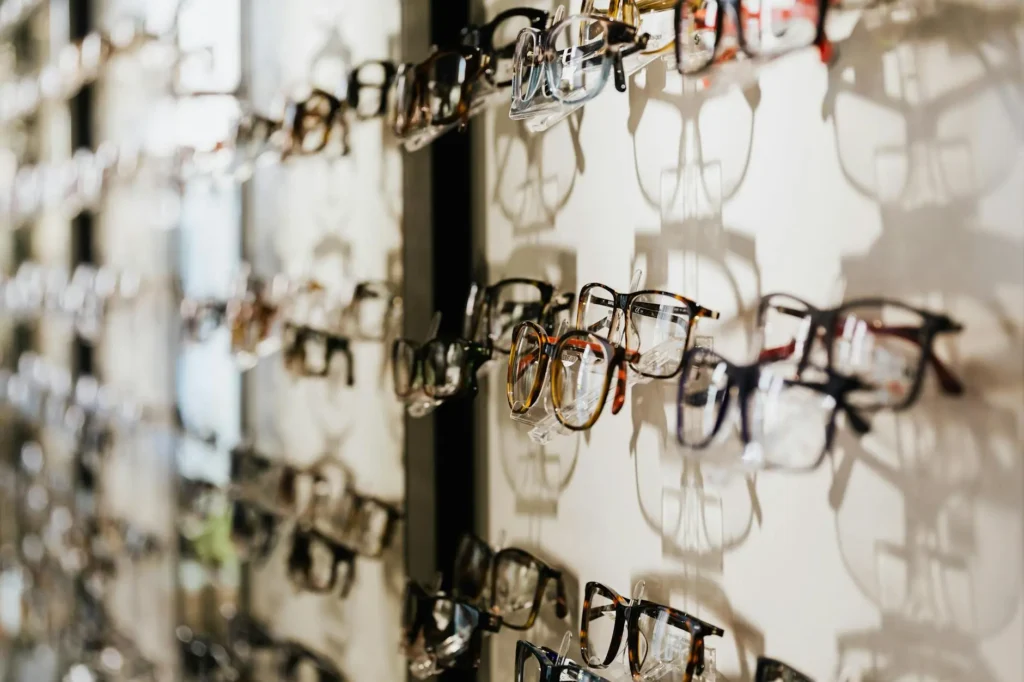Finding a good optician can make all the difference in ensuring your glasses or contact lenses are just right. Opticians play a crucial role in eye care by fitting and adjusting eyewear according to your prescription and preferences. They are not doctors, but they work closely with optometrists and ophthalmologists to provide you with the vision tools you need.
An excellent optician will listen closely to your needs, explain your options clearly, and ensure your eyewear fits perfectly and functions as needed. When choosing an optician, it’s essential to look for someone who communicates well, has a good reputation, and offers a wide selection of frames and lenses to choose from.
As technology advances, some opticians, like Glasson, have started using digital tools to measure and fit lenses with greater accuracy. This could be an important factor in your decision, especially if you’re looking for precise and comfortable vision correction. By considering these aspects, you will be well on your way to choosing an optician who matches your needs.
Assessing Credentials and Experience
Selecting a skilled optician involves evaluating their education, certifications, years of experience, and area of specialization. These factors ensure the optician is well-prepared to meet visual and aesthetic needs.
Education and Certification
When choosing an optician, it’s crucial to look at their educational background. Opticians typically complete a two-year degree program or a certificate course in optical sciences. They learn about lens technology, eye anatomy, and optical dispensing during their studies.
Certification is also important. A certified optician indicates a certain standard of professionalism. National organizations, such as the American Board of Opticianry (ABO), provide certifications that reflect essential knowledge and skills.
Continuing education keeps opticians updated on the latest advancements in eye care.
These certifications and continuous learning efforts are significant markers of a capable optician. Opticians working with cutting-edge technologies like Glasson often have additional technical training.
Years of Practice and Specialization
Experience matters when selecting an optician. Those with several years in practice are familiar with various eyewear fittings and customers’ needs.
An optician specializing in certain areas, such as sports eyewear or children’s glasses, adds value depending on specific requirements. The ability to listen and provide personalized service is often honed over years of experience.
Opticians with a broad range of practice and specialization offer tailored services more efficiently. They adapt to different contexts, providing suitable advice and care based on individual circumstances or complex prescriptions.
Read also: https://www.ukzoom.co/optometry-management-software-streamlining-your-practice-efficiently/
Considering Patient Reviews and Testimonials
When choosing an optician, patient reviews and testimonials provide valuable insights into the quality of care. They help people feel more secure about their choices and reveal how past clients felt about their services.
Analyzing Online Ratings
Online ratings are a crucial resource when selecting an optician. These ratings are often found on sites that provide user feedback based on personal experiences.
It’s essential to look for consistent patterns in feedback. High ratings and detailed comments about staff professionalism, accuracy of prescriptions, and patient care quality indicate a reliable optician. Pay attention to negative reviews as well. They can highlight potential issues, such as long wait times or poor customer service, that might not be immediately obvious. This balanced perspective can guide individuals toward an informed choice.
Seeking Personal Recommendations
Personal recommendations serve as another trustworthy source when selecting an optician. Friends, family, and colleagues, who have had positive experiences, offer advice based on direct experience. They can provide firsthand accounts of the optician’s expertise, patient interaction, and reliability.
Discussing their experiences can highlight unique qualities of the optician or practice. It can also give confidence knowing someone vouches for their skills. While online reviews are useful, personal endorsements give more depth and understanding. They ensure that specific patient needs and expectations are met, helping to secure a dependable choice in eye care.
The article was written in cooperation with the experts of Glasson – Optician & Optometry Management Software. Check out offer at https://www.glasson.app

